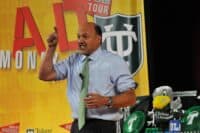From AAO Weblog
Last Thursday, the Public Company Accounting Oversight Board issued its report on its 2005 inspection of PricewaterhouseCoopers.
It found that the firm’s quality control was lacking in some audits: revenue and receivables at one audit client were inadequately tested, for one example. When the auditors repaired their audit, they increased the confirmations of accounts receivable by a factor of ten. On other engagements, the firm had failed to test impairment charges, various aspects of inventory and fair values of investments. PwC acknowledged the deficient audits and remedied them.
One could look at the report – and the one issued on Deloitte & Touche last week as well – and get the idea that the Big Four are out of control. And certainly, it’s bound to be spun that way in the press.
No apologies here for their mistakes – they don’t even sound like they’re failures involving extremely vexing issues. But it’s not an unfair question to ask all involved: what do you expect a regulator like the PCAOB to do? How can you expect them to inspect the Big Four each year and NOT find something? After all, their existence has to be justified as well – and if there are tens of thousands of audit engagements occurring each year, they’re not all going to be pristine. One would believe there’s plenty of meat for the PCAOB to chew if it wants to find it.
The fact that there’s a PCAOB inspection lurking in the bowels of each Big Four firm each year probably raises the quality of each employee’s work over what it would be in the absence of an inspection machine. But just because the PCAOB doesn’t bring one member of the Big Four to its knees each year doesn’t mean it’s not doing its job, either. Hopefully, if one of the Big Four goes off the rails into a swamp of total audit sleaze, the PCAOB mechanism is there to get them back onto the rails. Because it hasn’t happened yet, investors should be glad.
http://www.accountingobserver.com/blog/
Thank you for reading! Have some feedback for us?
Contact the 24/7 Wall St. editorial team.



